Best Marine Grade & Boat Speakers (Tested) – 2025 Buyer’s Guide
- By: Kameron Scott
- Published: November 14, 2025
- Updated: November 15, 2025
Tested by us
How we evaluate: We install and listen to the same 6.5″ marine speakers featured on this page in real boats and powersports setups. Instead of chasing lab numbers, we focus on what matters on the water: fitment, day-to-day durability, clarity at cruising speed, and how well each speaker works with (or without) an external amp. We also pay attention to LED integration and hardware quality on models with lighting.
- On-water listening: Assess midrange clarity, vocal presence, and high-volume balance with engine/ wind noise—then sanity-check low-end fullness versus size and enclosure (free-air vs. enclosed pods).
- Amp vs. no-amp use: Validate which picks wake up on factory power (e.g., value-oriented or high-sensitivity models) and which really need amplification (performance-focused options).
- Marine build & ratings: Note IP ratings and marine-specific design (sealed motors, UV-treated cones/surrounds, corrosion-resistant terminals, gasketed grilles) and how that translates to longevity on deck.
- Install & fitment: Check depth/OD, grille/tweeter protrusion under factory grills, and hardware quality; confirm compatibility with common head units and zones.
- LEDs & control (when offered): Verify LED hookup, controller requirements, and real-world appearance at dusk/night so buyers know what extras they’ll need.
Disclosure: Some speakers are manufacturer samples; others we purchase. Brands don’t get to review or approve our picks, and recommendations are based on our hands-on experience.
In this article: I hand-pick the best marine-grade boat speakers in the three categories boaters actually shop: 6.5″ cabin speakers, 7.7–8″ cabin speakers, and wakeboard tower speakers. This guide is for owners who want proven, on-water performance—whether you're upgrading a bowrider, pontoon, or a dedicated wake/surf boat. I include who each pick is best for, install notes, and links to deep-dive lists if you need more alternatives.
Who this is for: If you run your boat with friends onboard, need sound that carries in open air, and want components that survive UV, spray and salt/fog, this is your starting point. If you're building a wake/surf system, jump to the tower section below and plan on separate zones.
Three speaker types in this guide (and when to choose each):
- 6.5″ Coaxials – Best fitment and easiest upgrades for most factory cutouts; great with a clean 60–100W/ch amp.
- 7.7–8″ Coaxials – Larger cone area for real mid-bass and headroom in open cockpits; typically want 75–125W/ch.
- Wakeboard Towers – Both horn-loaded compression and traditional tweeter driver designs built to project to a rider 60–80 ft back; dedicated high-power channels and separate zone control recommended.
What Size/Type Should You Choose?
| Type | Pick this if… | Consider | Related Guides |
|---|---|---|---|
| 6.5″ Coaxials | You want a direct-fit upgrade that still gets loud when amped. | Less cone area than 7.7/8″; add a sub to fill in low end. | Best 6.5″ Marine Speakers |
| 7.7–8″ Coaxials | You want fuller mid-bass, smoother highs, and high output without going to towers. | Check cutout/depth; almost always pair with an amp. | Best 8″ Marine Speakers |
| Tower (HLCD) | You tow riders and need long-range clarity behind the boat. | Larger/heavier enclosures; requires more power; use separate zones. | Best Wakeboard Tower Speakers |
Pro tip: Look for brands that publish real marine validation (UV and salt-fog) and use marine-first materials (synthetic spiders/cones, stainless hardware, sealed baskets, conformal-coated crossovers). Then give them adequate power and a clean tune—see my amp tuning quick guide and best marine amps to get started.
Best 6.5″ Marine/Boat Speakers
>>> See my full list of 6 1/2″ Boat Speakers Guide <<<
Wet Sounds ZERO 6 (ZERO 6 XZ)
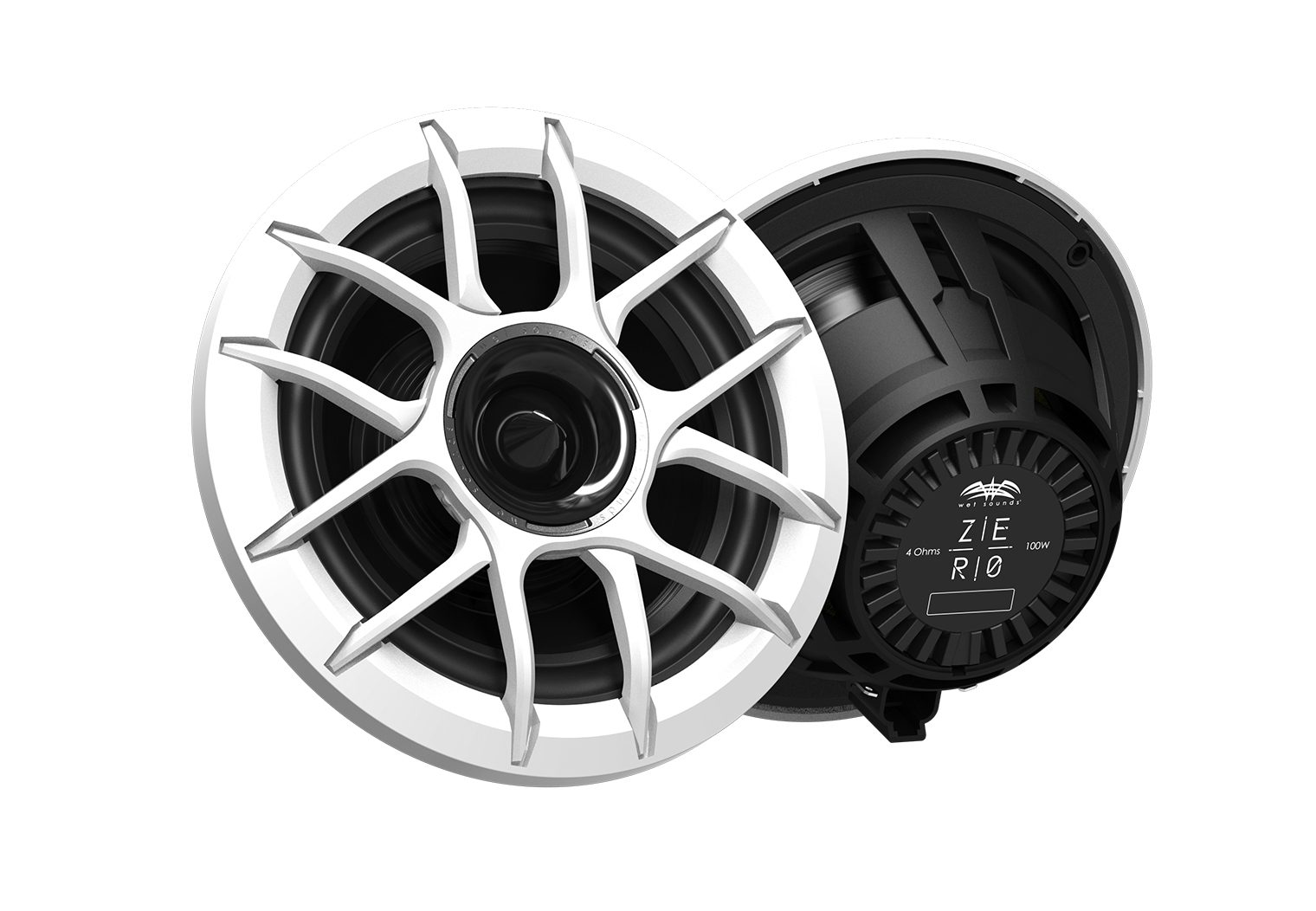
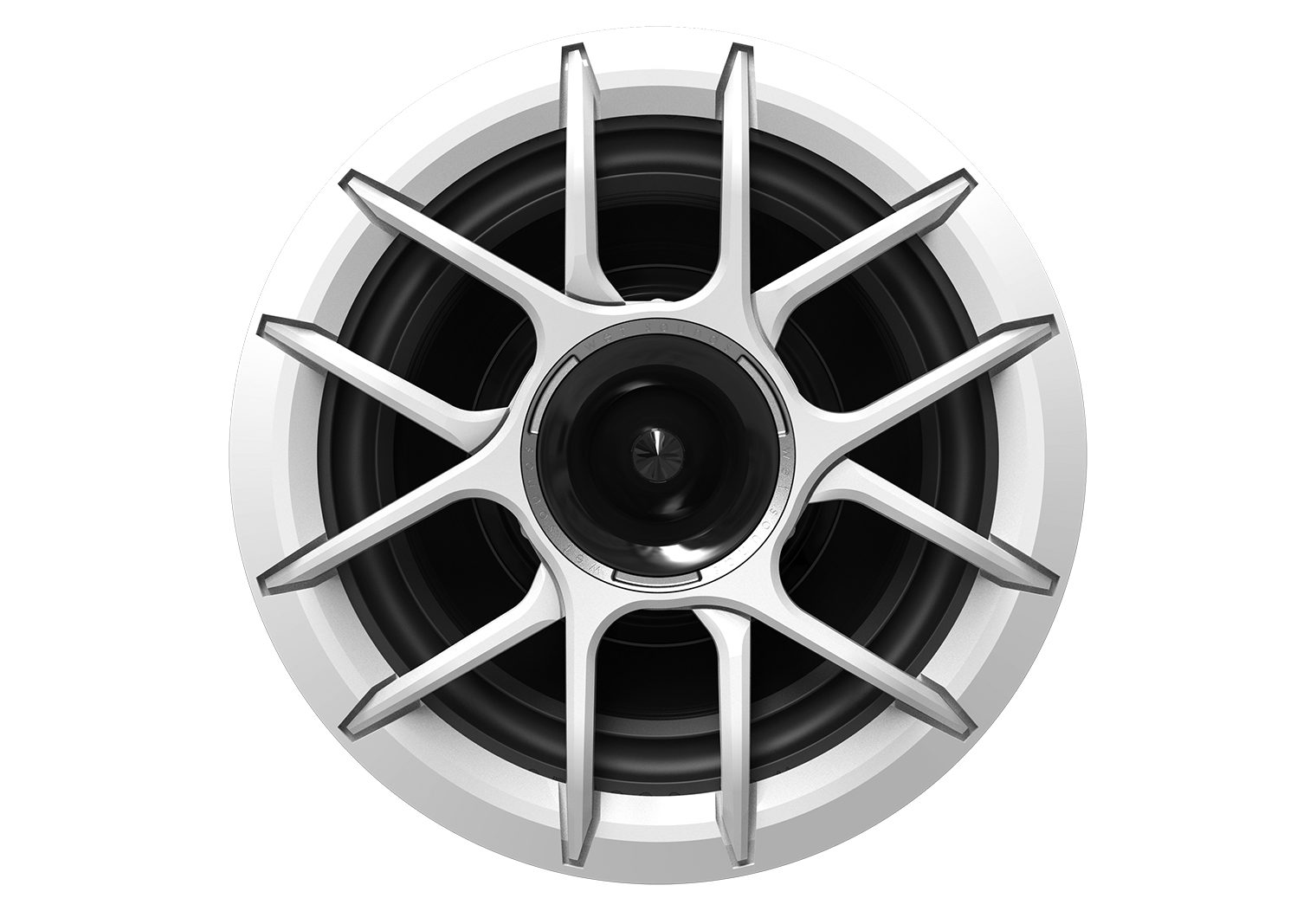
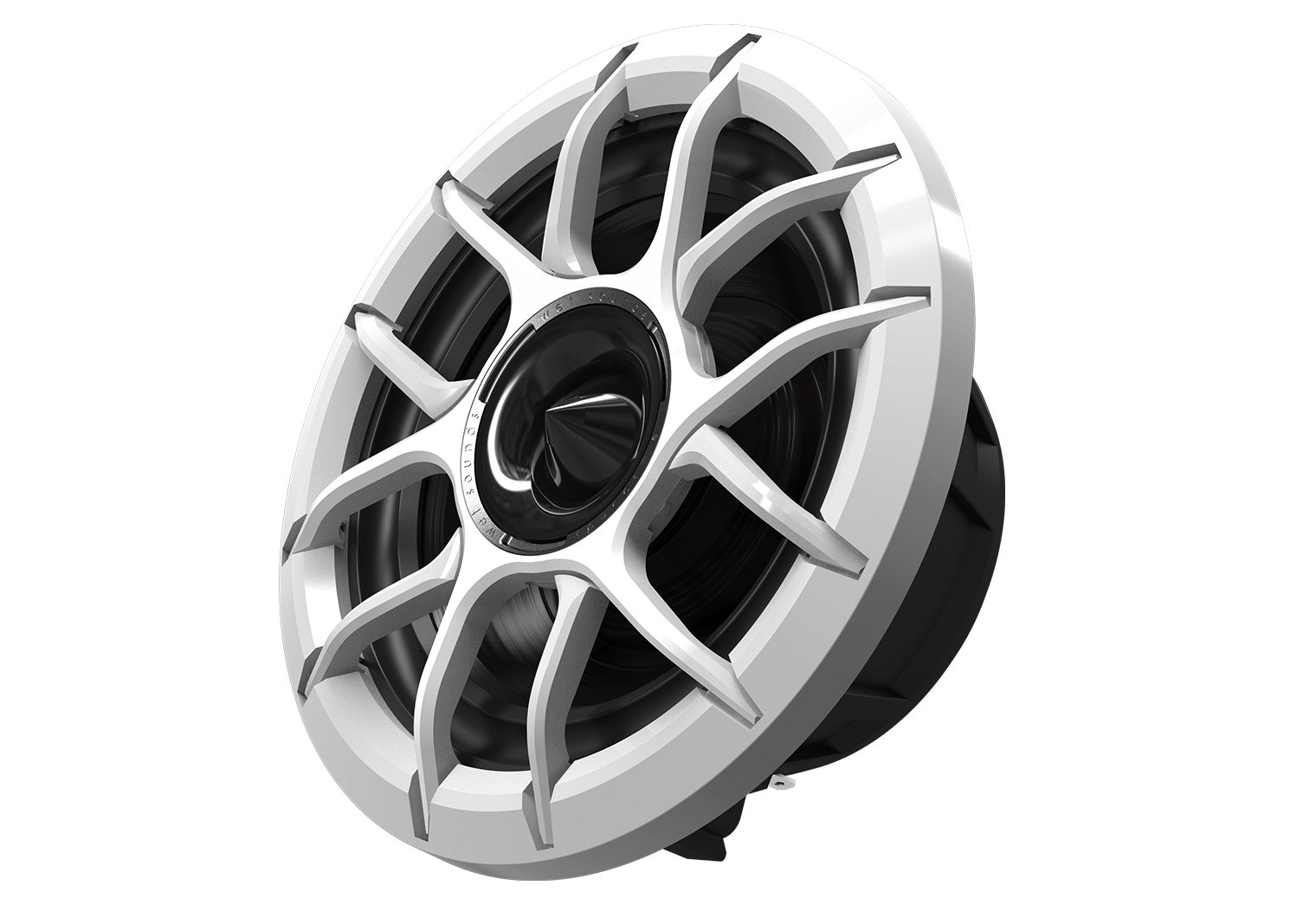
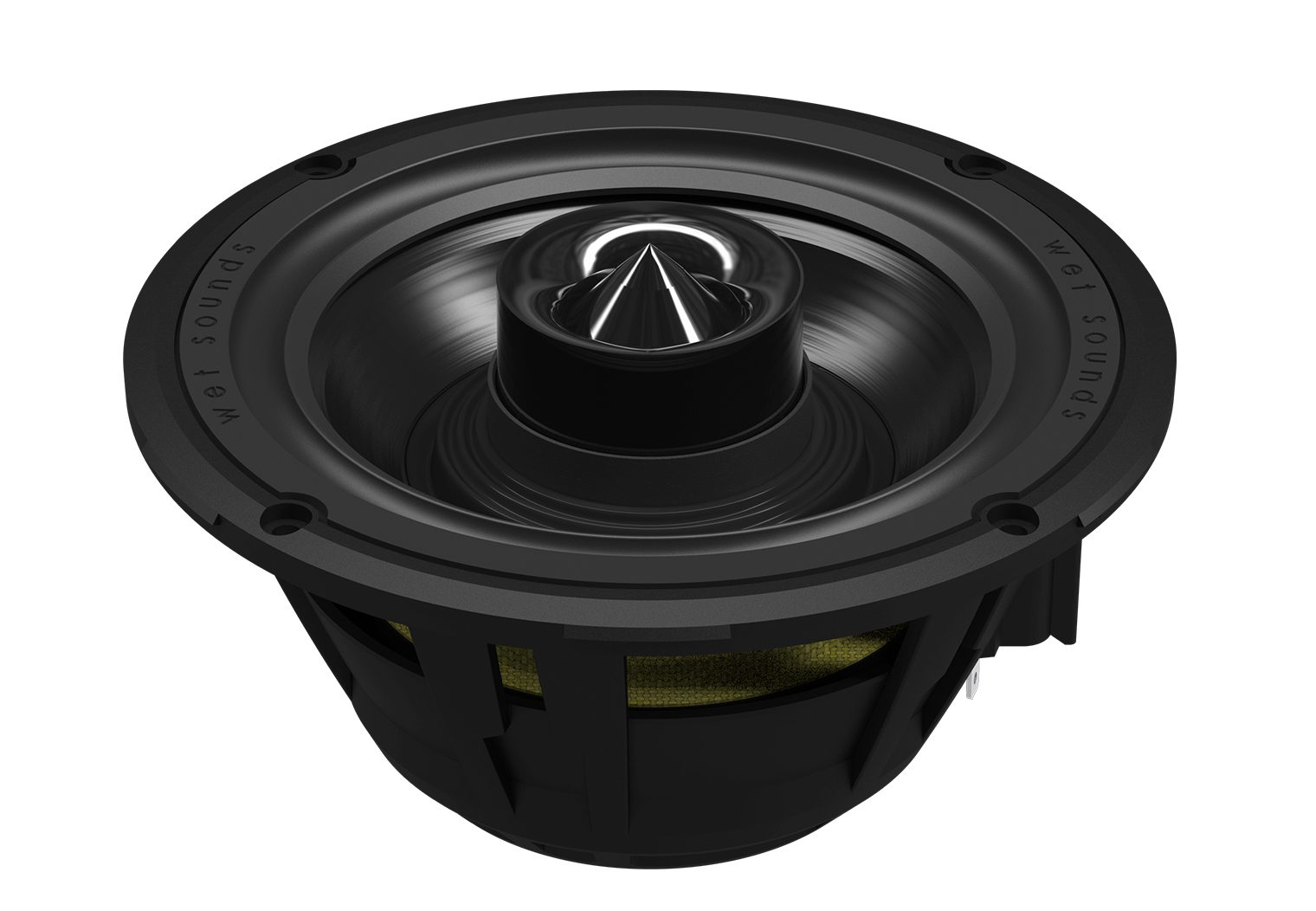
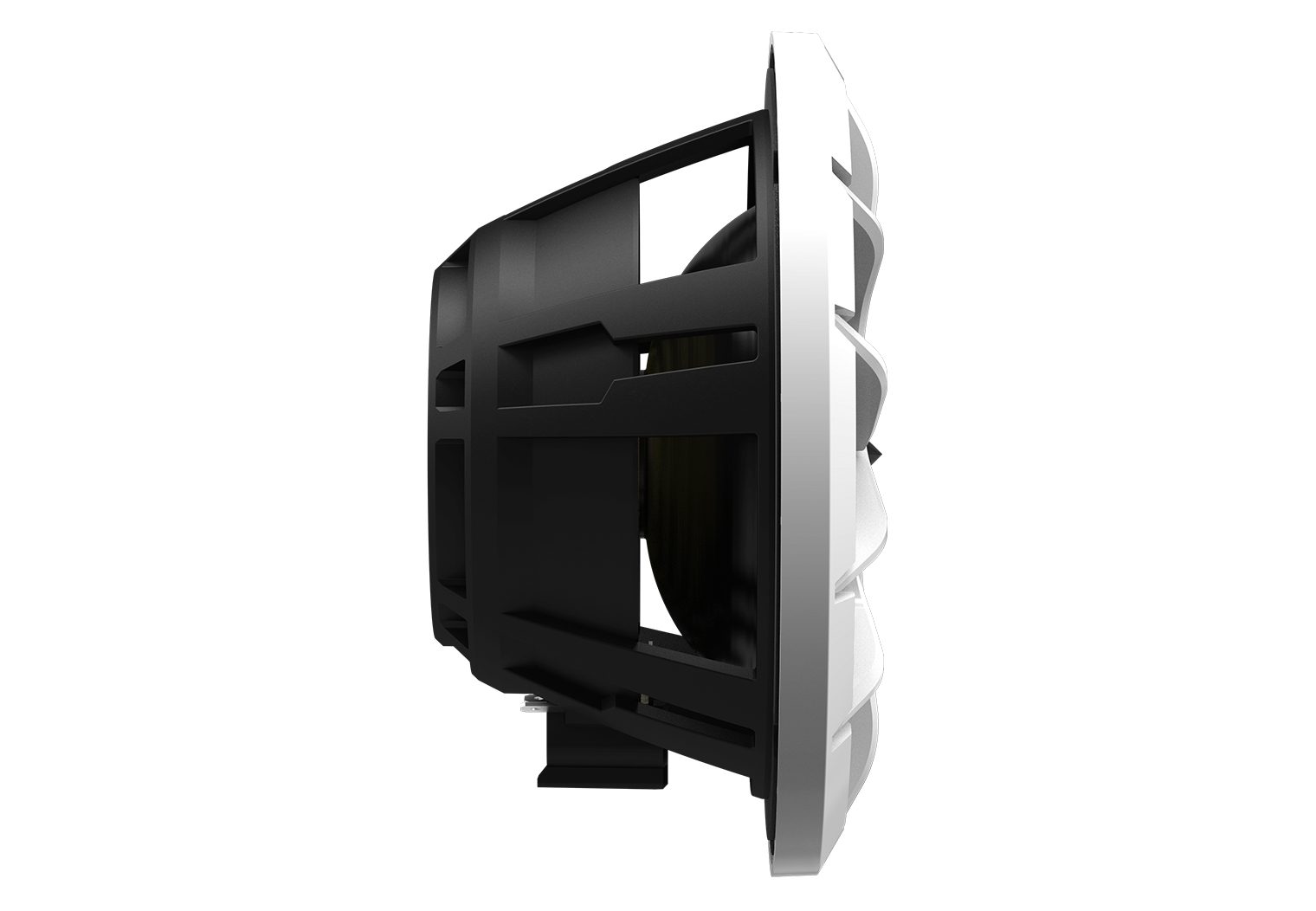
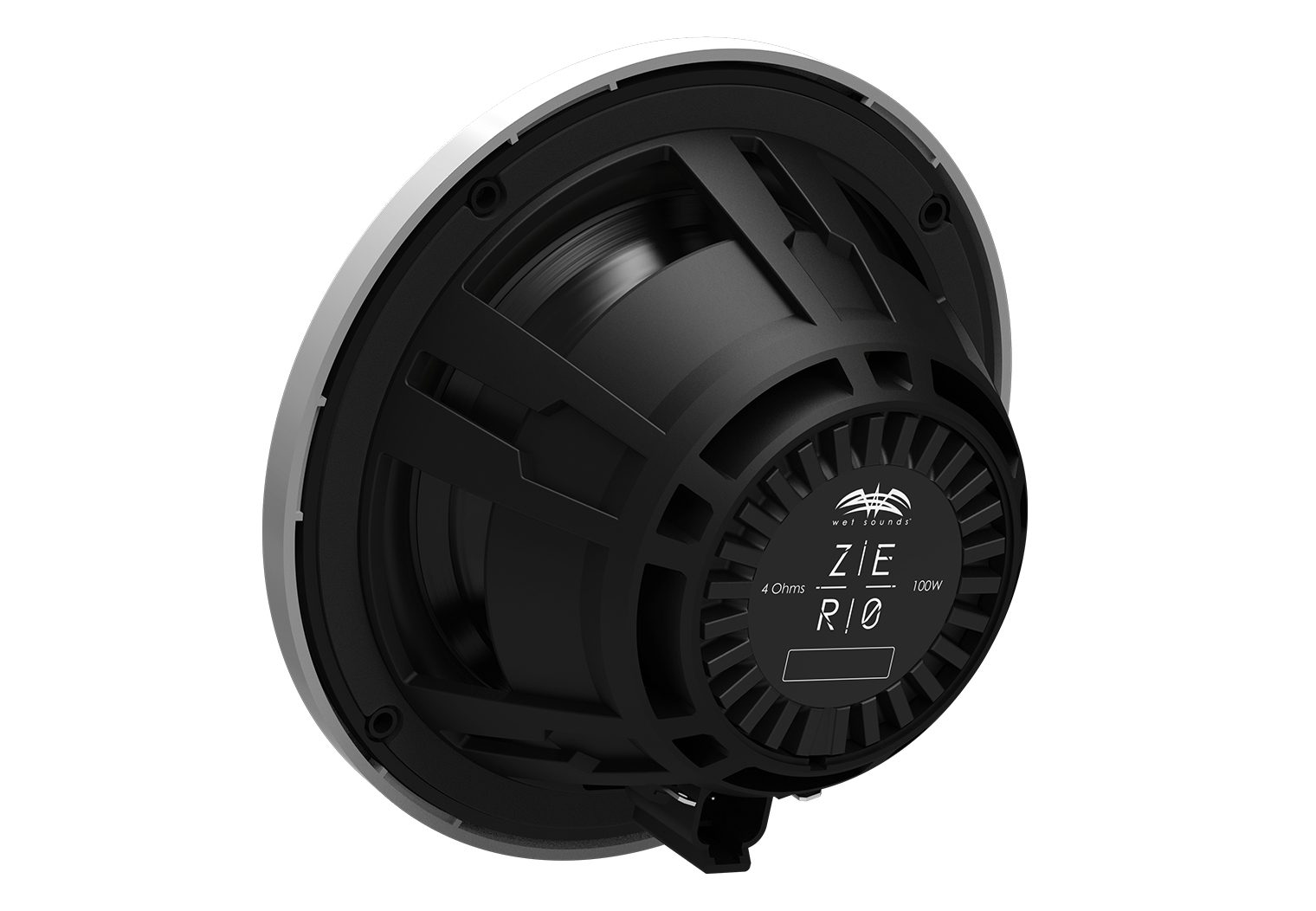
Latest Prices
We test gear and may earn a commission. Buy now clicks are how we make money and support the time we spend making content. This doesn’t affect our picks.
Why I Picked It
I reach for the ZERO 6 when I need big-boat projection from a standard 6.5″ hole. The horn-loaded tweeter keeps vocals intelligible in open air, while the composite cone/surround/spider package resists UV and moisture better than typical paper-backed or cloth components. The shallow basket and twist-lock grille also solve real install headaches in thin gunwales and arches. Matched with 80–120W/ch of clean Class-D power, these tune flat with only gentle EQ—great off-axis and at party volume.
| My notes | “Tower-like” projection from a 6.5″; easy to aim the top end without harshness when set up right. |
| Good pairings | High-quality marine amps in the 75–125W/ch range; consider DSP/zone control via a modern marine head unit. |
| Ideal installs | Pontoons, bowriders and center consoles needing more throw without upsizing cutouts. |
Key Features
- 1″ horn-loaded titanium tweeter (projects like a tower speaker in a 6.5″ cutout)
- Marine-first build: high-strength Nylas™ composite frame, rigid PMGS composite cone, TPR surround, Nomex aramid spider, integrated motor heatsink
- Shallow-mount (≈2.72″), twist-lock grille hides hardware
- Power handling: 100W RMS / 200W peak; 4Ω; ~90 dB sensitivity
Reasons to Buy
- Outstanding output and clarity from a 6.5″ footprint
- Rugged materials and shallow-mount flexibility
Reasons Not to Buy
- Shines with real amplifier power—head-unit power alone won't do it justice
- Pricier than mainstream 6.5″ options
Best 8″ Boat Speakers
>>> See my full list of 8″ Boat Speakers Guide <<<
JL Audio M3-770X (7.7″)
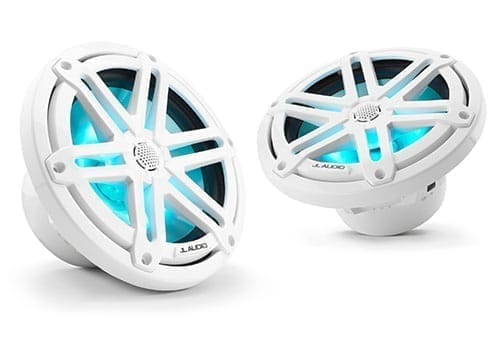
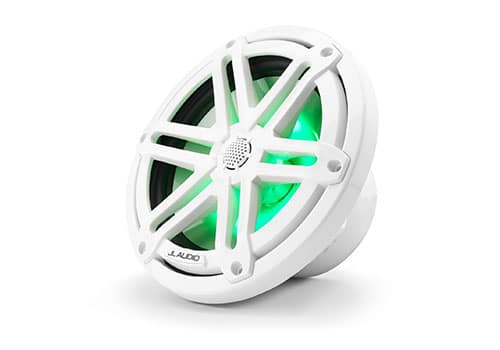
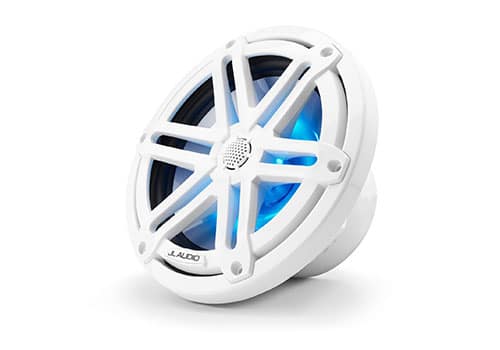
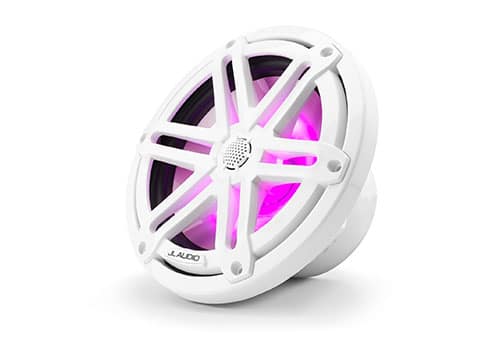
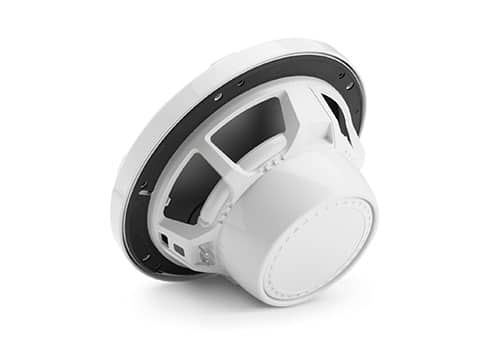
Latest Prices
Key Features
- Oversized 7.7″ marine coaxials for more output and bass than 6.5″
- 0.75″ silk-dome tweeter + MIPP woofer cone for smooth top end and durable mid-bass
- Continuous power 70W RMS (225W peak); 4Ω; ~90.5 dB; ≈45–25k Hz
- Designed for real marine duty—built to exceed industry standards for salt-fog and UV exposure
Why I Picked It
When a boat can't fit true 8.8″ cutouts, the M3-770X is my “sounds bigger than it looks” solution. The 7.7″ cone and efficient motor give you real mid-bass and output, while the treated silk dome tweeter keeps highs clean at volume without the brittle edge some hard-domes bring. JL's marinization and testing ethos are excellent for longevity, and the line plays nicely on 75–100W/ch—ideal for multi-zone setups that need smooth, non-fatiguing sound across the cockpit.
| My notes | Refined voicing, forgiving off-axis, great with or without LEDs. |
| Good pairings | 75–100W/ch marine amps; add a marine subwoofer to unlock full low-end. |
| Ideal installs | Boats with room for 7.7″ cutouts; owners prioritizing tonal balance over brute SPL. |
Reasons to Buy
- Class-leading sound quality for the size
- Strong marine validation and hardware
Reasons Not to Buy
- Lower RMS rating than some 8.8″ competitors (still loud with proper power)
- Costs more than budget 8″ options
Best Wakeboard Tower Speakers
>>> See my full list of Wakeboard Tower Speakers <<<
Wet Sounds Revolution Series (REV 8 / REV 10)
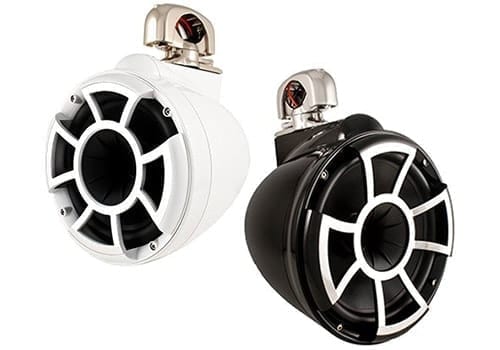
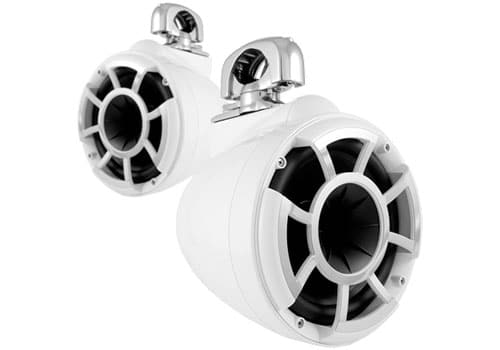
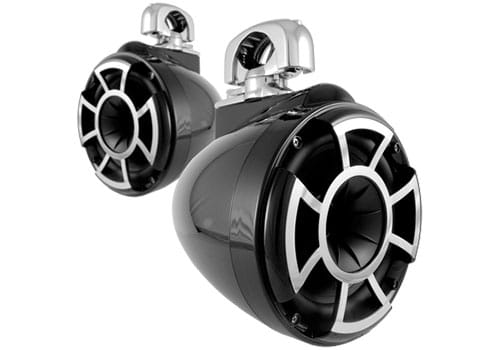
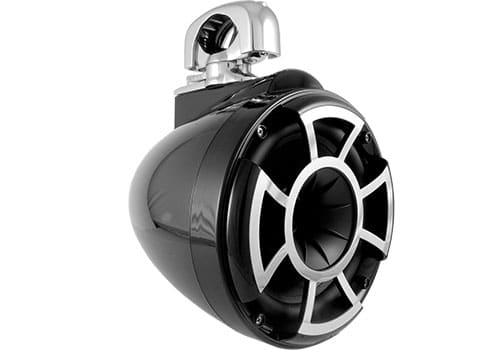
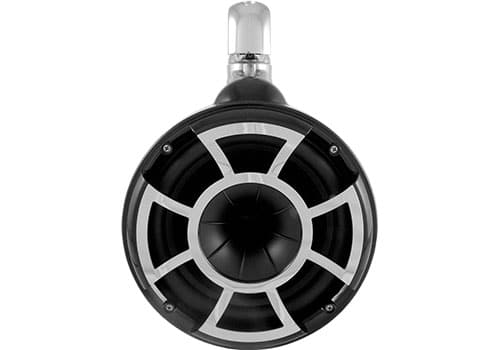
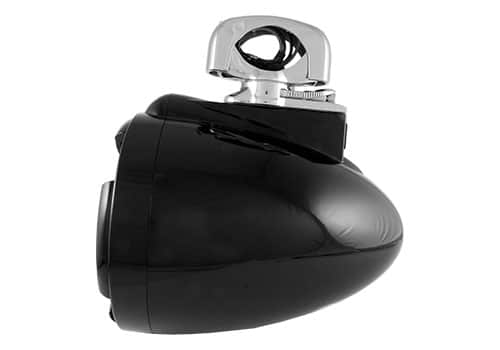
Latest Prices
Key Features
- REV TEC™ long-range tuning for loud, full-range sound on-axis and off-axis at distance
- Pro-Axial™ titanium horn-loaded compression driver + Kevlar-reinforced EFG™ cone woofer
- RMS/Peak (REV 8): ≈200/400W; 4Ω; ~92 dB; multiple swivel/fixed clamp options (1″–3″ tube sizes)
Why I Picked It
When the rider's experience matters most, Wet Sounds' REV series is my benchmark. The horn-loaded driver gives clear, intelligible mids/highs to the rope with less beaminess than older HLCDs, and the Kevlar-reinforced woofer holds together when you pour real power on. Clamp choices make rigging easy on most towers and arches, and they blend tonally with high-output cabins (e.g., Wet Sounds ZERO or REVO) so the boat and rider hear the same “voice.”
| My notes | Serious long-range projection without the brittle edge; rugged enclosure and hardware. |
| Good pairings | Dedicated high-power marine amp channels (≈200W/ch+); run a separate tower zone for rider vs cabin control. |
| Ideal installs | Wake/surf boats where the rider is 60–80 ft back and needs vocals/guitars to cut through. |
Reasons to Buy
- Industry-leading projection and clarity behind the boat
- Clamp options and serviceable hardware
Reasons Not to Buy
- Larger/heavier than cabin speakers; plan mounting carefully
- Requires real power; budget amps need not apply
Build It Right: Power, Zones & Tuning
- Power properly: Most marine speakers wake up with 60–150W RMS/ch. Start with my best marine amps and real-world reviews like Fusion Apollo and Infinity 6001A.
- Use zones: Separate cabin and tower on dedicated channels with a head unit that offers multi-zone/DSP, e.g. JBL R4500 or Fusion MS-RA770.
- Tune cleanly: Set gains correctly, then apply gentle EQ. My amp tuning quick guide walks through the process.
- Don't skip low end: A marine subwoofer lets cabin speakers play cleaner and louder.
Why Trust Our Opinion on Boat Speakers?
First off, whether its automotive audio or marine audio – we’re all in. And just because we’re “CarAudioNow” doesn’t mean we don’t love boats and boat stereos too. When it comes to marine audio, we’ve got over a decade of experience documenting custom installs and product reviews. Our founder, Kameron, is particularly invested in boat stereos – just check out his stereo upgrades on a Nautique G23, Axis A22 and Lightning 247SX (to name a few). It’s dozens of installations like these that make us an expert in not only car speakers, but marine speakers too.
CarAudioNow is also an award winning blog, founded and built from the ground up by car enthusiasts over a decade ago. We don’t use AI to throw regurgitated information about a few boat speakers on a list and say they’re “the best”. We’re dedicated to providing meaningful and authentic lists, with practical information that will help you make an informed decision on a product. And we do it because we genuinely enjoy or highly regard the stuff we add to our lists. Our readers and our reputation are both more important to us than a quick buck or the top rank on Google – although both of those would be nice! Read more about how we choose our top lists here.

